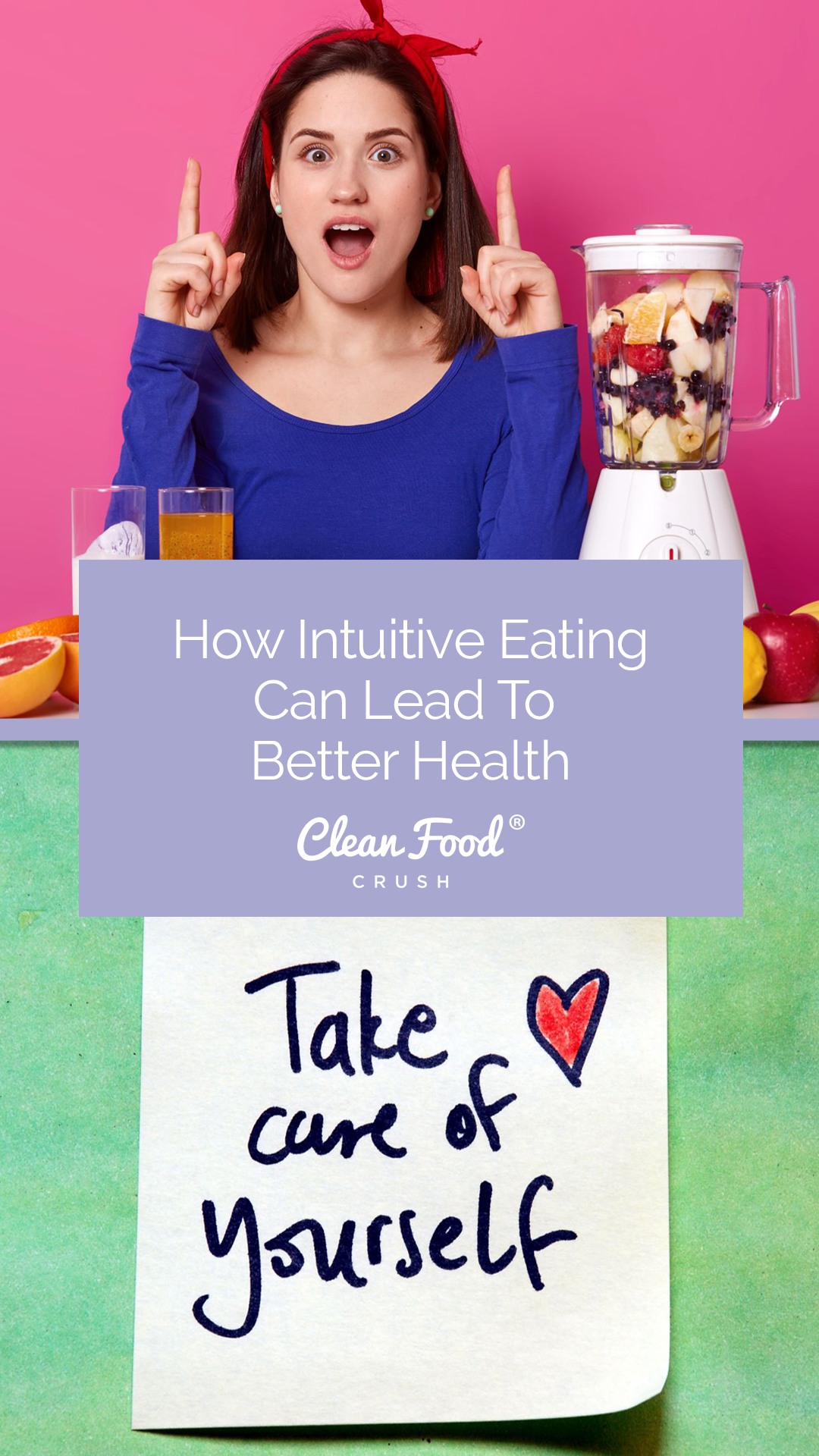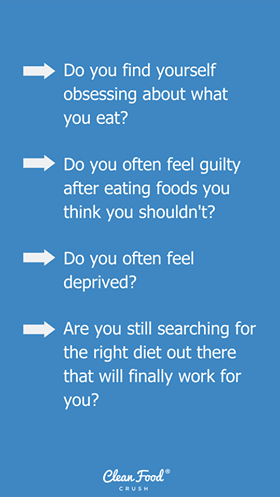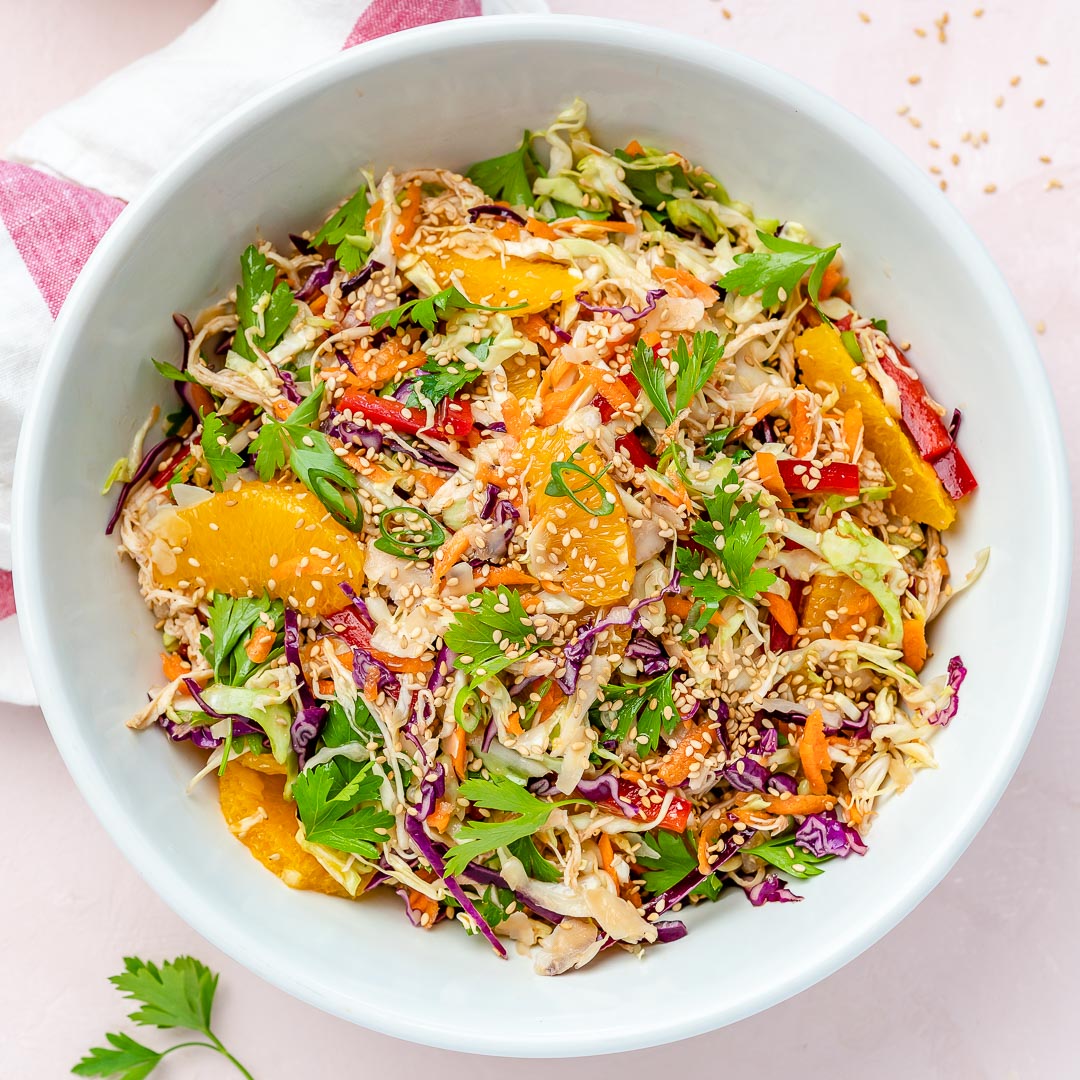

Quickly Self-Assess:

If you answered “yes” to any of these questions, you’ve likely experienced the frustration that often comes along with dieting rules that are unfortunately so prevalent in the media and our culture today.
Thankfully, there’s a different and better way to deal with these thoughts and manage your health. It’s called “Intuitive Eating”, and we’re talking all about it more below!
What is Intuitive Eating?
Intuitive eating is a mindset and eating framework that was developed in the mid-nineties by two dietitians. Unlike what is advertised in the media about traditional dieting, it has nothing to do with diets, meal plans, counting calories, or even willpower, yet it can be transformational when it comes to your health and mindset regarding food. Intuitive Eating involves both the mind and body and teaches people how to tune into their body’s innate cues to guide their eating habits and ultimately make peace with food and their body. It involves a set of 10 principles that aim to give people freedom from restrictive dieting and obsession about weight.
While this may sound like a new concept, all of us are naturally born intuitive eaters. Infants and young children may cry when they’re hungry and naturally stop when they are full without anyone telling them what or how much or little to eat. As we get older, though, cultural influence and habits learned in childhood or adolescence can cause us to stray from this framework. Oftentimes, instead of letting our hunger, fullness, food preferences, and health goals guide our eating, we begin to eat based on a list of rules and restrictions.
Intuitive Eating is about re-learning how to eat outside of the diet mentality, and believes that it’s not just about what you eat, but also about how and why.
What are the benefits of Intuitive Eating?
Intuitive eating is associated with positive things like:
- Better body image
- Higher self-esteem
- A less unhealthy obsession with food
- Lower rates of emotional and disordered eating
- Lower body mass index
- and more
All of this is possible without traditional dieting or restriction. How is this possible? Keep reading to find out how following intuitive eating works.
How do I follow Intuitive Eating?
There are 10 Principles of Intuitive Eating, which are:
- Reject the diet mentality. This principle is perhaps the most important, since holding onto the belief that there is a magic or “perfect” diet out there makes it difficult to truly adopt an intuitive eating mindset. Frequent dieting often has a negative effect on metabolism and increases the risk of gaining weight in the long term, which ultimately defeats the purpose. Saying “no” to the diet mentality means changing your beliefs about the success promised by most diets and doing whatever is in your control to remove yourself from that environment.
- Honor your hunger. Dieting often teaches us to ignore hunger cues and be limited to strict guidelines and/or calorie amounts. Yet hunger is a normal, biological sensation and the truth is that ignoring hunger and restricting your body of adequate calories and nutrients can cause your body to fight back with cravings and likely lead to overeating. Visual tools like the hunger-fullness scale can help you learn and re-gain experience in honoring your hunger.
- Make peace with food. This means giving yourself permission to eat what you want, when you want without conditions. When you make peace with food, we are less likely to experience guilt or make up rules associated with eating (such as saying things like “I can only eat dessert on days that I exercise”). Making peace with food allows you to experience more enjoyment and less anxiety associated with eating, which can have positive impacts on so many aspects of your life.
- Challenge the food police. We have all likely had thoughts in our heads that tell us we are “good” or “bad” for eating certain foods. These thoughts create guilt and a negative association with food, though, which isn’t helpful in the long run. Challenging the food police means recognizing that no single food has the ability to make you healthy or unhealthy by itself, and believing that it’s the complete diet that matters most.

Satisfy Cravings, Boost Your Energy And Your Health With This Delicious Asian Salad!
5. Feel your fullness. Dieting often causes us to eat based on rules and routines, which doesn’t always line up with when we are actually hungry or full. Following this principle means slowing down with your eating and start listening for signals that tell you that you are feeling full and satisfied. Practicing mindful eating such as noticing textures, flavors, and eating without distractions can all really help with recognizing and honoring fullness. Referring to the hunger-fullness scale can help with this principle as well.
6. Discover the satisfaction factor. Have you ever felt full, but not satisfied? This is common, and often happens when we fill up on foods we feel like we are “supposed” to eat, yet avoid what we may truly want. As a result, we are likely to keep searching for that “one thing” that will make us feel satisfied, which can lead to unintentional overeating. At the end of it, we would likely have been better off (and had eaten less calories) if we would have just allowed ourselves to enjoy what we really wanted in the first place!
7. Cope with your emotions without using food. It is very common to use food to cope with unpleasant feelings and emotions, even without realizing it. Yet this pattern rarely addresses the underlying emotion and can lead to feeling worse in the long run. This principle encourages you to gain awareness about why you are eating, and to explore ways to comfort yourself and manage your emotions without turning to food every time (yet intuitive eating also recognizes that eating without being physically hungry is okay sometimes).

8. Respect your body. Speaking negatively about body size and/or shape is sadly second nature for so many people. While the media tells us that our body’s aren’t good enough the way they are, this principle encourages accepting your body for how it is right now. It’s still okay to desire change, just as long as it is done in a healthy, self-loving way.
9. Exercise and feel the difference. Exercise is definitely important to health, but it’s easy for it to become an obsession. Exercising with intuitive eating means shifting your focus from its calorie burning effects to other reasons for exercise, such as how it makes you feel both mentally and physically. Exercising only as a way to lose weight or eat more food means it is not going to be something you will enjoy or stick with long term. It’s always best to exercise because you want to, not because you have to!
10. Honor your health with gentle nutrition. Intuitive eating doesn’t forget about health, but it believes that being healthy doesn’t mean eating perfectly. An intuitive eater learns to make healthy food choices out of a genuine desire to nourish their body and not out of guilt or other food rules. Similarly to exercise, the goal is to choose healthy foods because you want to, and not out of guilt or food rules.
Keep in mind that these principles are simply guidelines to learning a new mindset, but they are not “rules”. There is no way to “fail” at intuitive eating, and incorporating even a few of the guidelines can make a big difference in your life and health.
Getting started with Intuitive Eating
Even though you now know the benefits and principles of intuitive eating, you still may not know how to begin. It’s helpful to start by thinking about and getting clear on your goals and desires with your relationship with food. What would finding freedom with food feel like to you, and how you would spend your days if you weren’t obsessing about food all of the time? Then, ask yourself what you can do each day to commit to your journey toward intuitive eating.
Remember that intuitive eating doesn’t ever expect or require perfection. It will likely take practice and time to fully adopt this new mindset since, if you’ve spent years following diets, it’s unreasonable to expect intuitive eating to come naturally or be a “quick fix”. So, be patient with yourself, and continue to gain awareness of your thoughts and habits. Working alongside a trained professional in intuitive eating can also be extremely helpful as you work to incorporate this new approach into your lifestyle.
Bottom Line
Intuitive eating is an emerging approach to health that is different from typical diet culture, but is associated with many benefits both for the body and mind. Anyone can adopt and follow the principles of intuitive eating, and if you do, you’re likely to experience more freedom and enjoyment with eating and in your overall life.
















